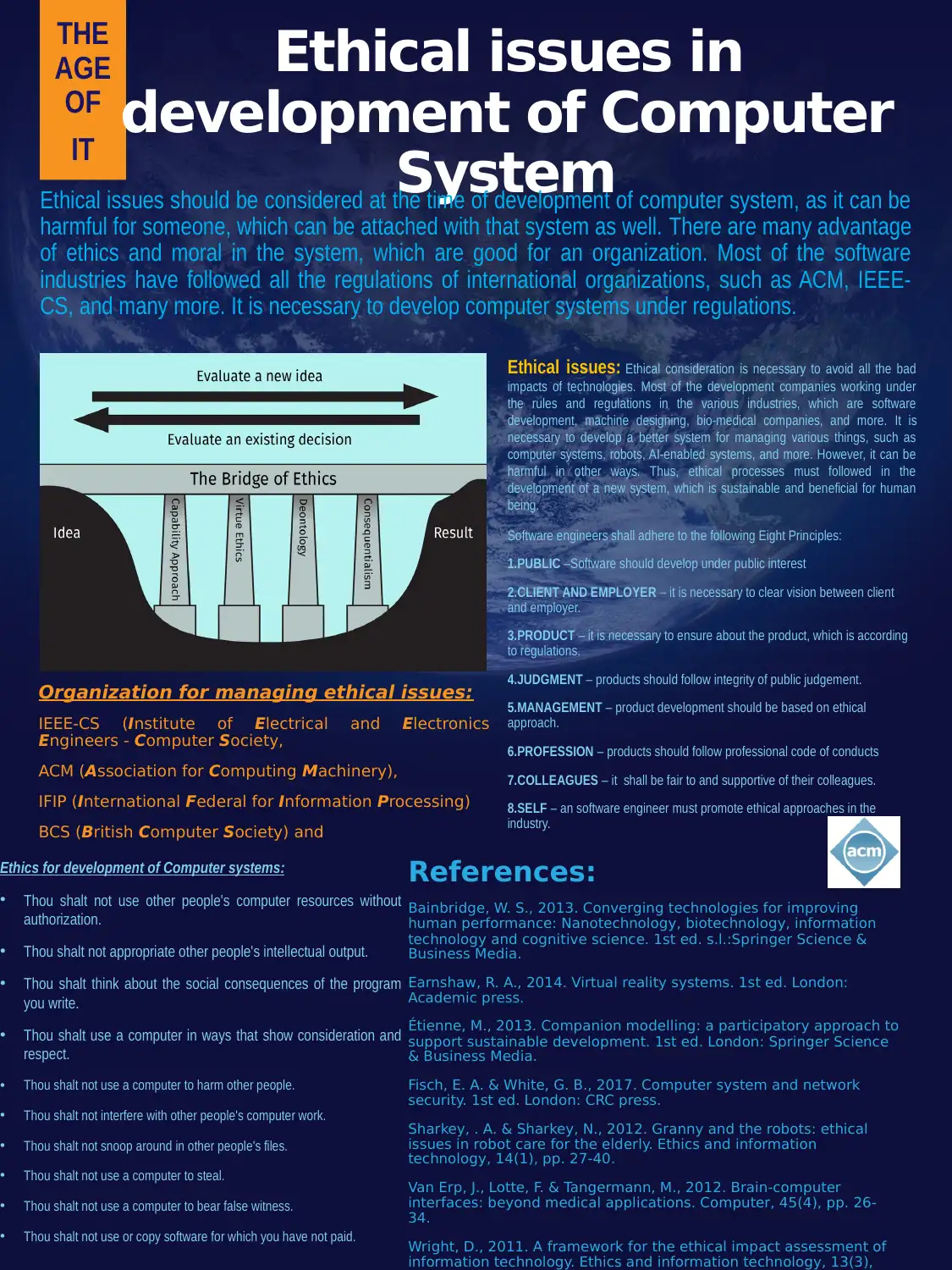Ethical Issues in the Development of Computer Systems: An Overview
VerifiedAdded on 2022/08/30
|1
|701
|90
Essay
AI Summary
This essay delves into the critical ethical considerations inherent in the development of computer systems. It emphasizes the importance of adhering to ethical guidelines and regulations, particularly those established by organizations like IEEE-CS and ACM, to mitigate potential harm. The essay highlights key ethical principles, such as respecting user privacy, avoiding unauthorized resource use, and considering the social consequences of technological advancements. It also underscores the necessity of ethical software engineering practices, including adherence to principles of public interest, clear client-employer relationships, product integrity, sound judgment, responsible management, professional conduct, supportive colleague relationships, and self-improvement in ethical approaches. The document offers a comprehensive overview of the ethical landscape in computer system development and the importance of integrating ethical considerations throughout the development lifecycle. The essay concludes by emphasizing the need for sustainable and beneficial systems that prioritize human well-being.







![[object Object]](/_next/static/media/star-bottom.7253800d.svg)